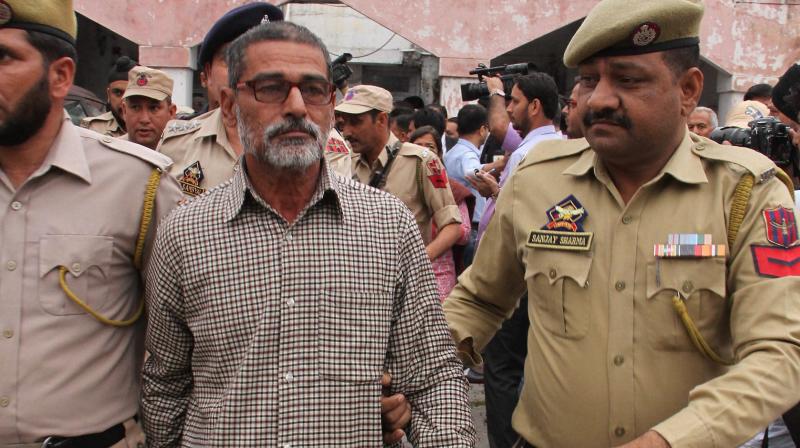Kathua convictions set new standard for courts

Hyderabad: Despite the political controversy surrounding it, and the case going up to the Supreme Court, the conviction in the Kathua rape and murder case was delivered in a court in just 275 days.
The prosecution and defence lawyers cross-examined 128 witnesses during the hearing in a court in Pathankot. The hearing had been transferred out of Jammu and Kashmir after the intervention of the Supreme Court. The manner in which this case was heard can be adapted as a norm in other courts where rape cases are pending for years, legal experts said.
There are over one lakh rape cases pending in courts at different levels. The percentage of pendency is growing at an alarming rate. Many cases are still being heard while in others the accused are out on bail. The gang rape and murder of the eight-year-old belonging to a Muslim nomadic tribe in J&K’s Kathua town had sparked outrage, years after the Delhi’s gang rape and murder of a 23-year-old student in 2012.
Crime statistics indicate that the manner in which rape cases are heard is poor. Social activist and academic Dr Ranjana Kumari, director of Centre for Social Research, told this newspaper: “All courts at different levels must adopt the same norm to get the judgment (as the Kathua case). In the case of Kathua, no special court was created but it ensured that all evidence produced by the police was crossed examined in a stipulated time.”
Dr Kumari said many courts do not treat rape cases in the same fashion, unless there is outrage and political pressure. “This case indicates that speedy trial and judgment is possible. I appreciate the police officers including women officer who took it upon herself to investigate,” Dr Kumar said, adding, the quantum of punishment given to the convicts is debatable.
Legal experts stated that in fast-track courts hearing rape cases, the judge must use provisions under Sections 157, 309 and 327 of the Code of Criminal Procedure with a view to examining of witnesses on a day to day basis, keeping adjournments at the bare minimum and expediting trial of cases involving heinous crimes such as rape.
Talking about the reasons behind pendency of cases, Ms Chiru Sinha, an advocate with the Supreme Court, said: “Several rape cases are delayed because there is no legal aid during the trial. If the cases are linked to any kind of political motivation, they proceed at a faster rate.”
Ms Sinha pointed out that the punishment given out to convicts is also subject to the judges. “In many cases, the judges are moved by the outrage of the public,” she said.

